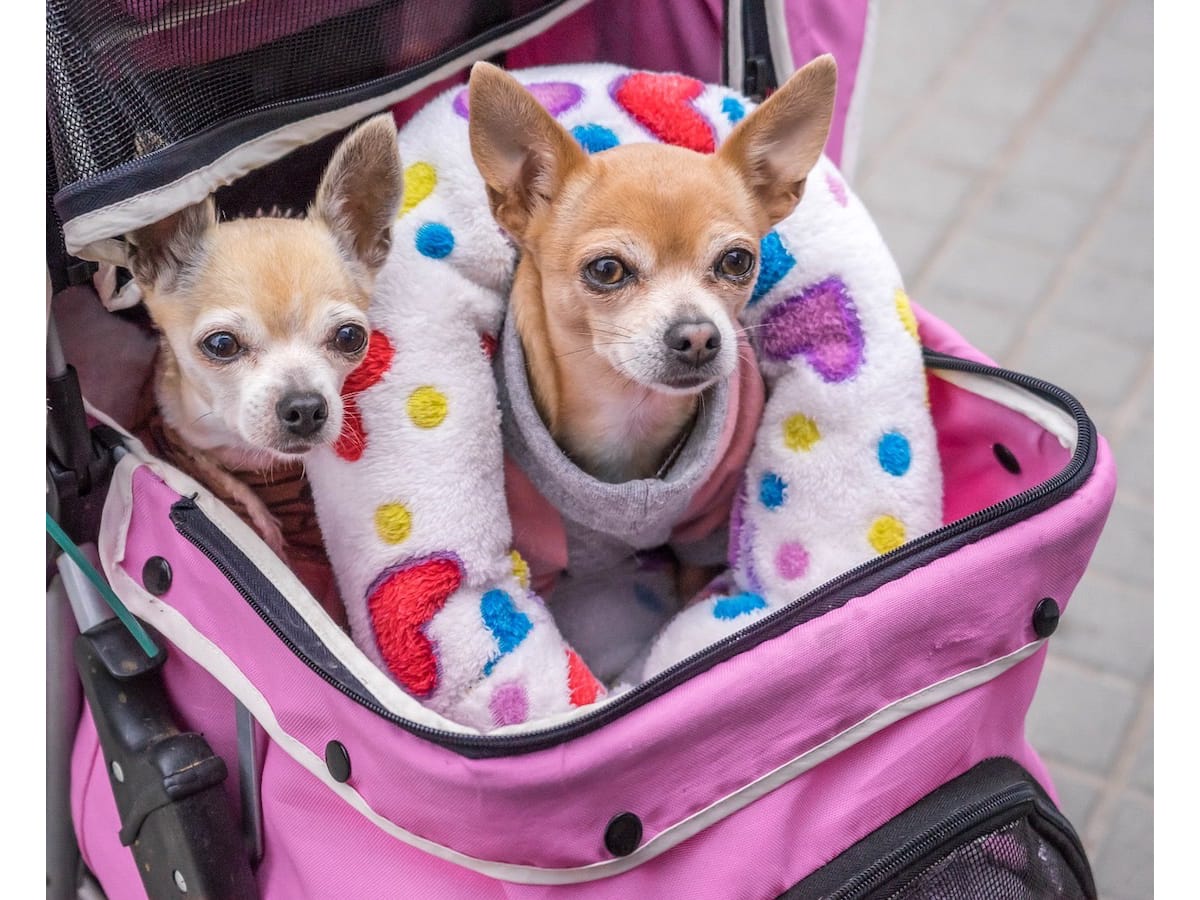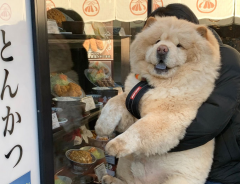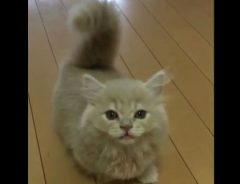
Source: © pixabay.com | Japan’s pets are sitting pretty.
Japan’s pets: like children, but quieter, cheaper and fluffier
Related Article
-

Vocal Shiba Inu Has Night And Day Before And After Nail Trimming Reactions
-

Everyone thinks that this massive fluffy chow chow from Japan is too cute to be a real dog
-

Shiba Inu Has The Perfect Smile Until He Finds Out He Is Walking To The Vet
-

Bell, The Very Hungry Kitty With A Bushy Squirrel Tail
-

Japanese TV celebrity shiba inu holds up photoshoots by constantly falling asleep
-

Twitter user delights with photos of adorable feline cuddling up to sock display


Japan is the only country in the world in which pets outnumber children. The number of cats and dogs in Japan first surpassed the number of children in 2003. By 2018, the country had just 17 million children under the age of 16, yet almost 20 million cats and dogs.1
Thanks to the declining birth rate, an increasing number of households are without children, and in many of them, pets have become substitutes.
This explanation might seem trite, but Italian researchers have shown a direct correlation between the declining birth rate and an increase in the rate of pet ownership.
Whereas in the past, people bought pets for their children, these days, most pet owners are people living alone, childless couples or ageing parents without grandchildren to dote on, all of whom buy themselves pets by way of consolation.
She’s probably wondering whether to buy a cat or a dog. | © freeimg.net
This is all the more remarkable when you consider how un-pet-friendly most Japanese towns and cities are. Tokyo has long been one of the most densely populated cities in the world, with green spaces like parks and gardens occupying just three per cent of the land area.
While Japan’s cities have always been tightly packed, over the past few decades the number of people living alone has increased dramatically. Housebuilders have responded by building ever smaller apartments, and this only adds to the challenge of owning a dog.
Nonetheless, with a surplus of love and no kids around to absorb it, city dwellers have good reason to find ways to incorporate dogs into their everyday lives.
They’ve done this by buying small dogs. Three of the smallest breeds - chihuahua, miniature dachshund and toy poodle - account for half of all puppy sales in Japan.
It’s not just that small dogs are small and inobtrusive. They are also cute - a crucial quality in a child substitute. Tellingly, the ‘mini-dog’ boom is supposed to have started from a popular TV commercial in 2000 that featured a kawaii, or cute, chihuahua.
Japanese dogs have good reason to feel smug. | © pxhere.com
Since the mini-dog boom got underway, attitudes to dogs have undergone a sea change. Until around thirty years ago, there were few pet dogs in Japan, and most were kept outside in gardens or yards. But with pets being called upon to provide companionship to the childless, many dogs have become fully-fledged members of the family.
Modern dog owners assume that their pet will live indoors with the rest of the family. For Japan’s dogs, the lonely days and nights of sleeping in a kennel in the yard are just a bad memory.
Dogs’ living quarters in the bad old days. | Smiley.toerist, CC BY-SA 3.0, via Wikimedia Commons
What is most remarkable about the nation’s 23 million cats and dogs is how rarely you see them. While I often see dogs - often in prams or baby strollers - a cat is a rare sight. On the few occasions I have seen one, it has invariably shown zero interest in socialising, and hurried off with a look of reproach bordering on scorn.
According to the Japan Pet Food Association’s annual survey of pet owners, between 2004 and 2017 the percentage of owners who keep their pet indoors all the time increased from 60% to 84% for dog owners and 72% to 86% for cat owners.
By way of comparison, only about 10% of cats in the UK are believed to live indoors permanently (although the figure is expected to grow there too, for the mollycoddling of pets is an international phenomenon).2
Why are Japanese pet owners so reluctant to let their beloved babies go outside? Some say that if they let the cat out, it only craps in the neighbours’ pot plants. This is an understandable concern, for not wanting to disturb other people explains a great deal of modern life in Japan, from the ban on smoking in public to the suicide rate.
But the upshot of all this consideration for others is millions of pets that are too frightened to go outside. Involuntary hikikomori (shut-ins), they see the outside world much as their owners do: as a place full of potential dangers (with the risk of having to interact with a stranger being the biggest danger of all).
Not only are most pets anti-social, but they are also spoilt something rotten. The Japanese love of children is well-known, but Japanese dogs are typically pampered considerably more than children. Businesses such as doggy spas, and restaurants that allow pets to sit down at a table and eat with the rest of the family, are booming. Some pets even have their own closets filled with luxury doggy clothes from designers like Gucci and Chanel.
Yo, cool threads dude! | © pixabay.com
Over the past 30 years, innumerable surveys have been conducted in Japan to figure out how so many people have would up less interested in breeding than pandas. They have found that the two main factors are the cost of raising a child and the general nervousness with which people view the future. Japan’s pets would seem to be the unwitting beneficiaries of this malaise, as millions of workers find themselves too poor to raise a family, and no one to spend their disposable income on. For Japan’s cats and dogs, at least, it’s a great time to be alive.
A typical member of Japan’s anti-social social club. | © pixabay.com
But life in a gilded cage in post-growth Japan is not sustainable. In South Korea, where the birth rate is even more sclerotic than in Japan, the government has warned that unless something is done to get people baby-making, the last South Korean will die about 750 years from now. Japan is in the same boat - and when it sinks, the nation’s cats and dogs will go down with their owners.
Japan’s pets should sit up and take notice: unless mistress starts making some babies of her own, chances are the world will end not with a bang, but the yowl of a hungry cat wondering who’s going to feed him now that his celibate, centenarian owner has died.
Sources:
1. "Cats outnumber dogs as pets for second straight year" (Japan Times, Dec. 26, 2018)
2. "Should you keep your cat indoors or outdoors?" (Alan Irvine, Homesitters Ltd., Katzenworld UK, June 28, 2017)